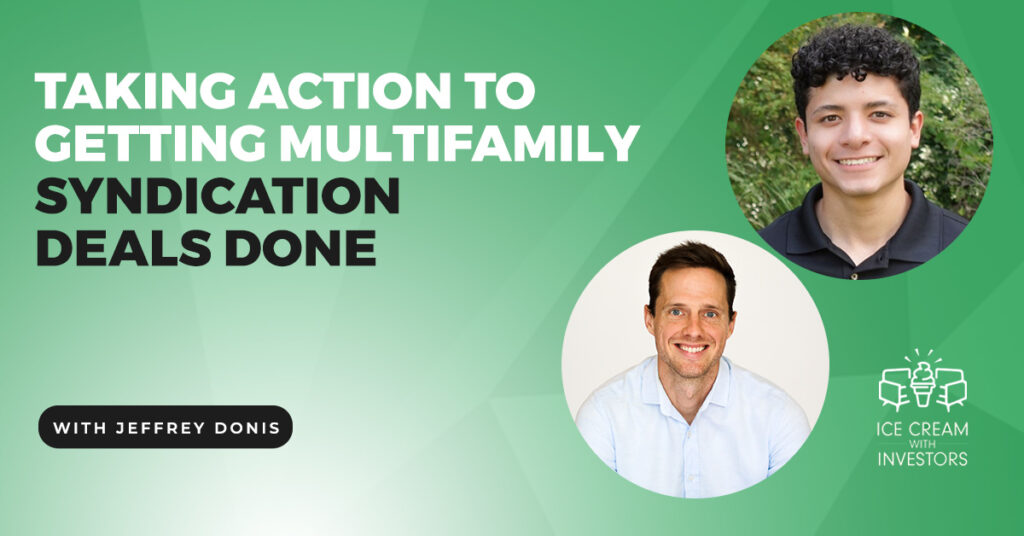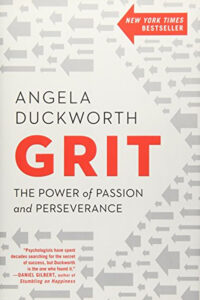Jeffrey Donis is only 21 years old and he has already syndicated 1,000 multi-family units. To be fair, he didn’t do it alone. He had help from his brothers who are also joining him in his journey into real estate. With that, he’s a very family-oriented person with his number one goal being to retire his mom from working. Tune in today to find out just exactly how he will do that with his syndication deals. Join Matt Fore as he talks to the Head of Investor Relations at the Donis Investment Group, Jeffrey Donis. Jeffrey will share more about his journey into multifamily real estate. Learn how he is helping passive investors invest alongside him. Find out his work ethic of just not stopping cold-calling until he gets a deal. Discover what it takes to find success at such a young age. Listen in so you can follow what Jeffrey just did.
—
Watch the episode here
Listen to the podcast here
Taking Action To Getting Multifamily Syndication Deals Done With Jeffrey Donis
Jeffrey, welcome to the show.
Thanks for having me. I appreciate it.
We like to start with the difficult questions here. What’s your favorite ice cream?
I like cookie dough ice cream from Target. I forget the brand, but I like to put brownies in it. If you haven’t tried that, you have to.
That’s cookie dough and brownies in the same ice cream.
You can’t have cookie dough brownie ice cream. It’s got to be cookie dough ice cream, make the brownies yourself, and then you put them in.
I almost got into fisticuffs with somebody because I said I like the corner brownies. They said corner brownies are disgusting. Are you a corner brownie or a mid-brownie type of person?
I like it a little hard, so I do the corners as well. I’ll give you that, but I wouldn’t be opposed if it was the middle. Take a plate of brownies.
Good brownies are good brownies. Tell our audience what’s the scoop. What do you do now?
My brothers and I are going to invest in apartments. We help passive investors invest alongside us. Now, we’re focused on North Carolina, which is where we live. We also look at South Carolina and Georgia.
You have a very interesting past. Before we get to your past, tell our audience how old are you.
I’m 21 years old in 2023.
You’re already doing apartment deals. I’m so envious that you even know what apartment syndication is at 21. I don’t think I found the term until I was 33. Where did your real estate journey begin? How did you get involved in real estate at all?
Initially, I was a college freshman at a local university here in North Carolina. This was about three years ago. I read Rich Dad Poor Dad. A lot of people tend to have read that book when they first got started in their real estate journeys. Same with me. That’s what broke my mindset. I went to school thinking I was going to graduate, get a job, and work up the corporate ladder. That was my thought process.
Eventually, when I read that book, it opened my eyes to a different non-traditional path that I ended up taking. We started listening to more podcasts, like BiggerPockets, Grant Cardone’s podcast, YouTube, and anything we could get our hands on. Eventually, we found wholesaling. Once we hit that, we started looking into what wholesaling was, we started taking action, and then we landed our first deal. That’s what opened the gate. I was like, “I guess it’s where the gateway drug was,” which was wholesaling.
The gateway drug to success is wholesaling.CLICK TO TWEET
You were wholesaling in 2020 if I’m not mistaken.
Yes. I can give you the story of how we ended up being sent home from school because of the pandemic.
Please. I want to hear that.
To go back, I had read Rich Dad Poor Dad, but I hadn’t started taking action. My mom was from Guatemala, a third-world country in Central America. That’s where she was born and raised. She moved here when she was very young. She was nineteen, and she had my brothers and me in New York. We moved to Durham, North Carolina, which is where I still live and where we grew up. I’d never been back to Guatemala. During my winter break, which was six months into my freshman year of college, my mom took all of us for Christmas and New Year’s to Guatemala for the first time. While I was there, I was reading a lot of books and was taken aback by the upbringing that my mom had.
She’d always tell us about it, but I know a lot of people that have gone and taken trips to third-world countries. They have a similar experience where you don’t truly understand how much you take for granted living in the US until you spend some time in a third-world country. I spent three weeks there. Where my mom is from specifically is a small village in an impoverished area. They’re very happy and awesome people. I understood that when I came back, it lit a fire under my brothers and me to get over that paralysis analysis stage. We started taking massive action which, for us, was cold calling, pulling a list of data, and trying to get our first deal. I was in the college dorm room when I got back, and we would come back into the group of things.
Most people don’t understand how much they take for granted living in the US until they actually spend some time in a third-world country.CLICK TO TWEET
We were cold calling for about two hours each at our own respective universities here in North Carolina. We all went to different schools, my two brothers and I. I work with my twin and my older brother. In between classes, almost no social time, working out, and trying to have a balance between trying to build a business and getting good grades, we were trying to manage to get our first deal. Eventually, COVID-19 happened. None of the students on campus were allowed to stay in their dorm rooms any longer so we had to evacuate very quickly. I had to get all my stuff and go home. Luckily, my brothers and I got reunited back home.
At this point, we had already started cold-calling two hours a day. Now, with us being online, we could get away with doing less in regards to school and doing more cold calling because, for us, we understood the more calls we made, the more likely we would find a good lead and close our first deal. That expedited the journey. That 2 hours went from 12-hour days and cold calling all day. My freshman year ended, and now I had the full summer to cold call all day with no disruptions.
That summer, we closed our first deal. I didn’t go back to school and decided not to sign up for classes. The biggest deal that we closed was that summer before I went back to my second year, which was my sophomore year or would’ve been, so I ended up not going back. My two brothers followed suit as well and ended up going into real estate full-time.
How big was that first deal?
We closed two on that same day. One was $33,000 and the other one was $500. There’s a big discrepancy in regard to this total fee amount. It was definitely a proof of concept.
I’ve heard you say before, during that time period, you knew that if other people had done this, you absolutely could do it. You just had to find your way and tactics that work for you.
We kept hearing it on the podcast. That’s why it’s so important. I always try to emphasize the importance of self-education. If you’re trying to do something that you haven’t necessarily done, it’s important to surround yourself with people who are doing it. You don’t always have to do that in person, which is better if you do, but you can do that through podcasts because it motivates you and also shows you what’s possible.

Multifamily Syndication: If you’re trying to do something that you haven’t done before, surround yourself with people who are doing it. And it doesn’t always have to be in person. You can do it through podcasts and whatnot.
Going back to your story of going down to Guatemala, how do you think that shaped you? I agree with you 100%. I’ve been to a third-world country before in Africa, and the way I described it to people is you don’t realize how little things matter. What I mean by that is streetlights, paved roads, guardrails on the roads, and how all those little things matter. It gave me a different level of respect for how well we have it in America. Were there any key takeaways from going and making that journey?
One story I like to talk about is growing up, my mom has always been a big go-giver, which is one awesome thing that I took away from her. I’m trying to live up to what she’s been able to do. Growing up, I would see her have these huge cardboard boxes that were bigger than me. Honestly, it still is. If I lay down next to it, the box is big, and she’d pack it with all these things. I’m like, “Mom, who are you sending all this stuff to?” She was like, “Go to my closet. Pull out any of my clothes that didn’t I couldn’t fit into or didn’t use,” and then I’d give it to her. I had no idea where they were going. Eventually, I found out where it was going.
It was going to my family in Guatemala. When I was there, I saw my aunts, my uncles, and my cousins walking around with clothes that I completely had forgotten about, like my hand-me-downs. They were using it on a day-to-day basis. That’s the thing that I like to take away. It is always as clear as anything. It is that they take the small things that I took for granted here and use them every single day. When I got back, what I realized was I had opportunities here whether that was access to this laptop or access to clean water to flush the toilets over there. What we have to do is we have to get water out of a hose, and then we have to pour it down the toilet.
You can’t flush it to get hot water. You have to heat it up on a fire that they make. It’s the small things like that. One is it’s so easy to take it for granted, but in the grand scheme of things, I knew I had an opportunity to build a business here. Not only to help them but to help myself, my family, and my mom whom they don’t have. If I were to try to go build a real estate company over there, I honestly don’t know how I would get started. I’m sure it’s possible, but it’s not the same as doing it here. All the limiting beliefs that I had, I truly decided, even though I’m low-income in America coming up with a single mother, it’s nothing in regards to the grand scheme of what is low income in other countries.
That’s right. I want to find a way to phrase this correctly. One of the things that I’ve loved about getting to know you and seeing your journey is the immigrant hustle. It’s the fact that you would cold call for 12 hours, pick up the phone, and after the 15th no, you keep on doing it to be successful. It is something that our economy desperately needs and is great for our culture. I also understand the flip side of that in talking to people that come from similar roots as you.
Their families who are first-generation immigrants want them to stay on the steady, successful path. “You might not be extremely successful, but you’re not going to fall off the wagon if you go down this path.” I assume when you and your brothers decided that you were going to leave college to pursue this route, your mother had some opinions about that. Can you talk us through what that experience looked like on your side?
Initially, she was very upset. I remember one night, we were at dinner. It just came up. My older brother was like, “Mom, I’m not going back to school next year.” She thought he was joking, and he wasn’t. I was like, “Me neither.” I said it nonchalantly while eating my food. She said, “Yes, you are.” Even when I was younger, growing up, I played soccer, and she would always leave things up to me because she didn’t speak English that well. Now she’s a lot better at it, but she’ll leave it up to me. In regards to signing up for classes, at the end of the day, I’m the one that has to do it.
That was up to me in regards to putting in my application or whatever. At the end of the day, I told her, “Mom, I’m not going back.” Once we closed on that first deal, she was more like, “This is a real business.” Initially, she was crying a lot. It was her American dream to leave it out for her kids. She wanted to leave it through us, in my opinion. Regardless of whether or not that’s fair, I can see her perspective from it. I saw the long-term vision, which was for me to retire her. Also, I can always go back to school.
At the end of the day, I have to make my own decisions and live my life the way I want to live it. I’m trying my best to surround myself with awesome people. That’s why I’m joining mastermind groups. I like to think I’m going the non-traditional route, but I’m still trying to invest in my education if I was going to a normal traditional college. I like to think that she can finally see that it’s starting to pay off to a certain degree.
Make your own decisions and live your life the way you want to live it.CLICK TO TWEET
I’m sure she’s super proud of you now that you’ve had this level of success you’ve had over the past couple of years. You and the brothers keeping in the family is even more. We talked a little bit about your brothers. You’ve got a twin and an older brother, but you also have a sister that’s been relatively successful as well. Do you remember any traits that your mom tried to instill in you as a kid or anything that was able to help all four of you become successful?
A lot of things that my mom does in regards to her parenting style more so leading by example. I would say she’s not the biggest with her words, but her love of language is actions. I forget the exact terminology they use but based on what she does. My mom still works hard in regard to what she does. She cleans houses and has been doing that since she moved here. That’s hard on her body. It’s very labor intensive. She wakes up at 5:00 AM or 6:00 AM and works all the way. She comes home until 3:00 or 4:00. Sometimes she’ll not come home at all, and then she’ll go back to work all the way up until midnight.
The goal is to retire her. That’s why we’re working so hard. Pressure is a privilege, but it’s not an easy pressure. I wake up every day and know my mom is going to work on it. It’s not a fun feeling. That’s why we go so hard. One thing that she has shown me growing up is she’s always been like, “I’m going to work hard. I don’t want to have a dad in your life right now because I don’t want someone to come in and hit you guys or something like that.” She always put us first. That’s why we’re so big on the family because she sacrificed so much to get here. As I mentioned, it’s a lot based on her sacrifices physically. It’s not always what she says, but what she does, and she has a strong character. Sometimes, it’s a little too strong in my opinion, but it’s something I can look up to.
Pressure is a privilege.CLICK TO TWEET
I like that quote there, “Pressure is a privilege.” You and your brothers started cold calling. You’re doing the wholesaling thing in 2020, and then you make this shift to apartment syndications and more commercial assets. One, talk us through why did you decide to make the shift, and then we’ll get into the strategy that you have around your syndications.
We were on a mastermind call with some single-family investors. There were a lot of wholesalers on the call, which is what we specialized in at that time. We had one individual who came on and was focused on development, but he was syndicating deals. We’d heard about what syndication was through Grant Cardone and different types of podcasts. People kept saying, “I wish I would’ve gotten started going bigger earlier.” We had only been in the business for about a year in regard to real estate. We decided we kept hearing this and knew what we wanted to do eventually, which was to get into commercial real estate, but we didn’t think we had the money, the knowledge, the expertise, or the network, and we thought we were too young.
There are all of these limiting beliefs. We had a meeting. It was a Tuesday in January. My twin brother was like, “If we want to get into this industry, specifically commercial real estate, what’s holding us back?” We wrote it all down on a piece of paper and decided, “Now, we’re climbing up this one tree.” It’s very transactional. We can’t necessarily stop it. There are so many deals that are coming in. You can make a good amount of money, but we were investing so much back into the business that, at the end of the day, we were working all day every day and saw it taking too long for us to get to our goal.
We realized that at this point, we’re young, we have all this energy, and we’re already working all day. Why not work towards our ultimate goal, which is commercial real estate? Honestly, we’re a little naive of us to jump ship, but we said, “Let’s do it.” We transitioned. The first book that we read was the Best Ever Apartment Syndication Book. The main reason we’re on the transaction side of it is the scalability of it in regards to transactional. It was two transactional on the single-family side. We were working all day, and we didn’t have any assets. We were like a marketing machine when it came to wholesaling. We had some creative finance deals, but it wasn’t necessarily us acquiring the assets that were going to allow us to have that freedom that we were looking for.
This mastermind group that you were talking about, was it a wholesale mastermind group, or was it everybody involved in real estate?
It’s a single-family wholesaling mastermind group. It was something that we paid a little bit of money to get into.
You jump into syndication, and one of the things about syndication is it’s a team sport. You could be good at raising capital but terrible at operations management. Finding deals in commercial real estate is a whole different level of a skillset than in the single-family as well. Do you think it helped you from a strategic advantage standpoint to have a group of you three so you could divide skills up? How was that conversation evolved over time?
The biggest benefit is that we already have worked together, and we’re brothers, so we have a similar why, work ethic, and values. On top of it, it’s three people that are full-time real estate and are willing to do anything to get it done. That’s something that’s hard to find, people that match your work ethic, willingness to grow, fail, and all of these different things. We have nothing to lose. As I mentioned, we’d all left school at that point, so we burned the ships, in a way. There’s nothing to go back to. We’re like, “We’re going to figure this out one way or the other.” We’re together, which was powerful.

Multifamily Syndication: The biggest benefit of syndicating deals with your family is that you already know each other. You have similar values and work ethics, and everyone is willing to do anything to get the deal done.
The way you three divide up responsibilities, I understand you’re in charge of investor relations. What are your other two brothers? What do they work on?
The way that we figured that out was by taking action. That’s what we do best. One of the downsides is I don’t necessarily love the planning side of things. I’d rather go try it and figure it out. My other brothers like to talk a little bit more, which is a good balance. Initially, I was already doing the acquisition side of our single-family business. I was on the phone as the acquisitions representative, so I’m closing sellers. It was easy to transition into an investor relations, capital raising role. My twin brother was doing our marketing at this point, but initially, him and my older brother Kenneth were doing our underwriting.
They were both trying to see who liked it better. My older brother started first. He was already having some type of traction with it. The way that we learned about the roles was the Best Ever Apartment Syndication, the book by Joe Fairless. We picked the three investor relations. Marketing wasn’t initially a role, but asset management and then the underwriting. Those are the main four, in my opinion. Under asset management, you can’t manage if you don’t have anything, so that knocked that one out. In the marketing piece, we knew that the thought leadership platform was important, so I started doing that.
My twin brother didn’t have much to do, so we were like, “Marketing is starting to get busy and time-consuming for me. Why don’t you take this and run with it?” Kerwin, my twin, is the one that does marketing. He is creative. He loves to write. That’s his passion. He’s an up-and-coming author. We’re manifesting it. That’s his skillset. In marketing in a different sense is his storytelling. That’s how he fell into that role. Kenneth, as I mentioned, is an underwriter. He started there. Over time, he got a lot better, and now he’s in love with it. I don’t see how.
Some people love their spreadsheets. What does the portfolio look like now for you all?
We’re co-GPed on four deals. We closed on the fifth one. It’s a little over 1,000 units at this point.
They’re all in North Carolina, South Carolina, and Georgia.
We haven’t broken into North Carolina or South Carolina yet. That’s where we’re actively pursuing opportunities. Currently, it’s in Atlanta. On top of it, it’s Jacksonville, Florida, and then we have one in Waco, Texas.
I am interested to hear and have this conversation as we enter 2023. How is your portfolio weathering the changes that we’re seeing now? There are a lot of folks that didn’t lock their floating rate debt. There are a lot of folks that are seeing inflation take a hold of their goods, labor costs, and things like that. What’s going on in your portfolio?
Thankfully, on all the deals that we’ve done, for the most part, we’ve locked in our rate cap. We did get bridge loans on all of them, but the rate caps, although they are being met, we were able to purchase that. It protects us on the upside in regards to the interest rate going as high as it is now. We can go into why we chose bridge debt if you want to. In regards to how we’re moving forward on those opportunities and deals actively on certain deals, we’re withholding our distributions. Not because we can’t pay the distribution, but because we think it’s important for us to be in a good spot in regard to our cash reserves.
We’d rather have the capital there. In the event that we need it, it’s there versus, worst case, having to go with our team and having to infuse more capital into the projects. The assets themselves are performing well. Obviously, the debt service has gone up because of those interest rates going up. In regards to the projects, we picked awesome markets like Jacksonville, Florida, Atlanta, and Waco, where our rank growth is still increasing. It is in most areas, but specifically, in those markets. It’s been going very well. Occupancy is high. Our demand for our units is still high. We’re more so a workforce housing type of demographic of residents. There’s a lot of demand for those types of units in the local submarkets that we’re in.
You mentioned withholding distributions. Did you go from monthly to quarterly, or are you withholding them now to get a gauge of how the plane lands?
We do quarterly distributions, and the reason that we’re withholding it is for time being. As I mentioned, we have the funds there. For the best interest of our investors, we’d rather have those funds to ensure that we can execute our business plan and that nothing necessarily gets put on standby. We have a pref for the deals that I’m talking about, so those will get paid out. In regards to the business plan, we want to make sure that we can execute it as we planned. We’d rather keep those funds in place versus having to go back to investors or go to our team and ask for those funds.

Multifamily Syndication: You can withhold your quarterly distributions if it’s in the best interest of your investors. You’d rather have those funds to ensure that you can execute your business plan and nothing gets put on standby.
I’ll tell you a little life raft here. A lot of people are doing that now. It’s not just you. With Blackstone having liquidity issues, it’s not liquidity issues. When they’re holding liquidity withdrawals from their biggest private equity portfolio in real estate and a number of different syndicators are pausing or lessening distributions, it doesn’t mean that real estate is in a bad spot. It means, to your point, we need to see how the plane lands here. Are we going to continue to see interest rates rise? Is inflation under control? Will rents continue to grow, or will they deflate over time? It’s actually a very financially prudent strategy for you all to withhold and see how things are going to go here.
It’s being more proactive versus reactive. Our number one goal is to preserve investor capital. At the end of the day, that’s based on how the asset performs. If we can mitigate risk and ensure that does go well, then we’re going to do that. A lot of our investors are on board with that, so we haven’t had much pushback on it.
When you’re in real estate, it’s better to be more proactive than reactive because your number one goal is to preserve investor capital.CLICK TO TWEET
It’s a difficult conversation to have. You being in charge of investor relations there, I’m sure you had to deliver some of those messages. How did your investors take that? Any lessons you learned on delivering a difficult message during this time?
The one thing that I’ve learned, and this comes down to anything in life or business, is communication. It sounds cliché, but the way that I can implement that and put it into something practical is by simply communicating more than what you need to. If you get that hunch of maybe you should call this person, you probably should. At any point, if you think there’s something that they should know, you want to send an email or give them a phone call, whichever you prefer. I typically think phone calls are better. That’s how I’d approach it. Being extremely transparent and extra communicative, especially during these rough times, that’s my goal at least.
Anyone can get better at it. Personally, I can improve on it. That’s something that has helped because it’s not like it takes them by surprise. It’s getting ahead of the curve and letting them know what’s going on and what we’re forecasting with our assets and with the market. A lot of people have been pretty flexible and understand what’s going on with our properties and how we see the market going. Honestly, I haven’t got much pushback as I mentioned. They have questions, and I assume some of them are too happy with it and would prefer us to be doing certain things. They understand, which is the important thing. That’s what builds trust.
You’re right that communication is very cliché. One of the lessons I learned early on in my career is bad news doesn’t get better with time. You might as well go ahead and hit the nail right on the head and at least get it past you. You all are going into this next environment and focusing on Class C assets and doing the value add rehab and things like that. Are you still focused on that area of the market, or do you see any other different strategies that you’re going to implement moving forward?
Initially, we were doing more of a C-class type of property, but now moving forward, what we’re looking for is Class B, 1980s vintage in those certain markets that I mentioned earlier. The reason for that is after doing deals in the past and having different conversations with different capital partners and team members, also our investors, everyone seems to be looking for a certain type of product. Going into these kinds of economic environments makes life a lot more fun if you can have the capital and your capital stack in place before going after an opportunity. I got into this business to have fun and enjoy myself.
Having your capital stack in place before you go after an opportunity can make your life a lot more fun.CLICK TO TWEET
I’m not going to back down because it’s challenging, but there’s a reason that they’re looking for those kinds of assets. It’s less risky. I would preferably go after those products because it excites me more. Personally, I would rather live in a Class B product. We are shifting our criteria to that Class B, 1980s vintage. Another reason for that is also because a lot of our capital partners and different types of family offices that we’re speaking with have been more inclined to invest in those kinds of products. That’s what we’re switching our criteria to for 2023.
I’ve said this a couple of times. Now, what we’re going to see is a reversion back to the mean. What I mean by that is Class C assets that traditionally trade at an 8.5% or 9% cap, or were trading at 5% caps in 2021 will revert back to the mean, and Class A assets, which typically would trade at a 4.5% cap, we’re probably trading at a 3.5% to 4%. That elasticity back to the mean is not as far. What I’ve done in my personal portfolio over the past couple of years is start shifting more into Class A assets.
With that being said, there’s not as much upside there, but it is about capital preservation, which you mentioned. Jeffrey, you’re a guy that’s got a long successful career ahead of you over the next 30, 40, and 50 years. Where does this thing end? How do you define success in your career? When you look back on it, where are you headed?
For me, success is a mixture of things. First and foremost, I’m very faithful. It’s being at peace and having a good relationship with God for me. On top of it, if I can try my best to have that be my centerpiece, everything else tends to fall into place because I have faith in one thing, and then everything else, I’ll naturally have faith in and understand that it will work out the way it’s supposed to work out. In regard to my business, I don’t think I’ll ever stop. Success for me is always enjoying myself, making sure that I’m doing the things that feel right and are in alignment with my faith. In regards to my mom, I want to retire her as soon as possible.

Multifamily Syndication: Success is always about enjoying yourself. Making sure that you’re doing the things that feel right and are in alignment with what you believe in.
We’re hoping to do that in the next couple of months. For our business, we’re looking to do 1 to 2 deals a quarter. I’d love to take our company similar to Blackstone and take it public. I’m reading Stephen Schwarzman’s book. It inspired me, and I was like, “This guy is awesome. I love the way he thinks.” It’s a cool goal to have. We’ll get there eventually. Thankfully, we got started early, so we have a long time to do that. I love the challenge. I’m very competitive. I love to win and have a good time, too, but I get to work with my brothers and awesome people. The cool thing about being an entrepreneur is you get to choose whom you work with and be able to do certain things like that. Growing the company in that direction is something that we’re looking to do moving forward.
As a twin myself, I envy you that you get to work with your twin and know that 40 years from now, when you guys are kicking it in retirement, you’ll look back and say, “Not only did we have our early life together, but we built companies together and also work together throughout our career.” That’s awesome.
I didn’t know you have a twin, Matt. You should have told me.
I’m fraternal, so I’m not a clone.
Mine doesn’t look like me. He’s a little uglier. I’m kidding.
Wyatt is better-looking and more successful than me, but mom loves me more.
That’s what matters.
Jeffrey, I want to switch this now into our last round. We’re calling this the Five Toppings. Our first one is, what is your favorite book, or what is a book that you’ve read recently that’s given you a paradigm shift?
Extreme Ownership is one by Jocko Willink. I know we were at the same event when we met him, and I read it after that. The one reason for me is it’s so easy for me to put blame on my brothers for doing something, whether that’s some small thing. Even if it’s not in business or in the business, it’s easy to blame them because there are three of us. When there’s something to needs to get done, it’s easy for me to justify to myself why it was his fault and not mine. If I can reverse that, I’ve learned that I can take more control over my life, and it’s more effective overall.
That’s why it’s important to do that. On top of it, the number one book for me now is Who Not How. That’s how we’ve been able to get to the point where our company is. It’s based on who we’ve known. Being young and newer to the industry, I would be lying to say I know everything, or I’m as experienced as an individual who’s been in the industry for twenty years. What I can say is I’ve been actively building my network. I’m grateful and very gracious to the people that I have in my network because they’ve been pouring in and giving all of their insights as soon as I need them. If I have a question, I can reach out to people. If I don’t know the answer, I can definitely find the answer.
Those are two fantastic books right there. Our second one is, I believe that the person you become ten years from now is directly correlated to the habits that you have and the things you do every day. What are some of the habits that you have every day?
I do this every day. At 5:00 AM when I wake up, I do my yoga for ten minutes. I do meditation for ten minutes, and then I’ll do a prayer in the morning. Right up when I’m done with that, I list 5 things I’m grateful for, and then 5 things that I am asking God for in a way where I’m trying to manifest it and have a direction of what I want to accomplish. I then go to the gym for about an hour with my brothers. It’s mainly weight training. I don’t do much cardio because I play soccer on the weekend. I then come back, take a cold shower, do daily affirmations, and then I’ll journal.
I also do my daily goals and then my life goals. I like to have all that in perspective every day. I read for 30 minutes. I like to read the Bible for ten, and then I’ll listen to an audio recording of an individual that I look up to in the spiritual part of my life. He goes over certain parts of the Bible. Sometimes I don’t understand what they’re talking about in the Bible, so having someone give their perspective on it helps me interpret it. After that, I’ll go on a walk with my brother, with my dog, talk about life and then come back. I usually work from about 9:45 until 8:00 with lunch and dinner in between. On the weekends, I’ll schedule. The morning routine is the same every day. That’s pretty much the daily habit.
Is your yoga routine for ten minutes the same every morning?
I like to look it up sometimes. I’m very athletic and I like to work out. In some mornings, I’m feeling pain in certain parts of my body, and I’m sitting down all day. If I have back pain, I’ll do back yoga or focus on my back, neck soreness, legs, and knees, or things like that. I’ll throw on a 60-minute yoga and 10 minutes a day and break it up.
I started doing ten minutes of stretching a day in 2020 or so. It’s amazing how much better you feel moving your body a little bit in the morning. It wakes me up too.
It does. I don’t know if I mentioned cold shower. I do it every day.
You won’t get me on that train. I swam for twenty years, and getting in a cold pool is one of my least favorite things in the world to do. Our third one is, what’s the best piece of advice you’ve ever received?
It’s the books that I’ve read. It’s all about who you spend your time with. It’s very cliché. It’s about the sum of the five people that you spend your time with. In regards to how I’ve applied it to my life, I’ve joined a lot of mastermind groups. I didn’t go to school, but I’ve picked my mentors wisely to the best of my ability and put people in my path. That is why I’m where I am. Not to say I’m at this crazy level or whatever, but I’ve been able to try to accomplish certain goals because of the people I’ve been able to surround myself with.
I don’t think a lot of people think about who you’re intentionally spending time with, what thoughts are coming into your head, and who’s at the cause of that. I’m very specific and deliberate with what I’m listening to, what books I’m reading, who I’m allowing into my small circle, and who I’m giving my time to. With all my energy, I’m very deliberate and picky. That’s something that I’ve gotten and think it’s important.
I even heard you say that you stopped listening to music and switched to podcasts. I do long-distance running and cycling. One of the best life hacks I’ve ever implemented is not listening to music during that time but listening to podcasts. It’s because it is influencing your subconscious mind, even if you don’t realize it.
Listening to these words constantly gets submerged. Macroeconomics used to make no sense to me, but now I’m like, “I get it.”
Our fourth one is, what is the thing that you’re most proud of in your life?
I’d say my faith. In 2022, it was a challenging year for business and personal growth. One thing that I’ve newly come into in this new frame of mind is always having a beginner’s mindset. Initially, that was easy because you’re a beginner. The one thing I struggle with growing up was having this false sense of self-confidence, which is a good thing. I was overconfident, in my opinion, and I love being humbled because I have that open mind.
I have a beginner’s mindset, which makes me hungry to learn more and do things that I don’t ever want to think I’m too good to do something. Whether I’m cold calling someone or picking up the phone, I’m taking massive action. I’m afraid that if I ever get to the point where I’m not humble anymore, I would stop doing those things which have got helped me get to the point where I am. Having a beginner’s mindset and staying hungry is important to me.
You’re right. Having a beginner’s mindset as you become more established and something is even harder to do. I envy you for having that mindset. That’s nice. Our fifth one is if you could sit down and eat a bowl of ice cream with anyone dead or alive, who would it be and why?
For me, straight to my mind comes Cristiano Ronaldo. I love soccer and his work ethic. There are certain things between talent, hard work, and persistence. There’s a book by Angela Duckworth called Grit. It talks about it. He’s a great example of that regardless of how he’s perceiving the media right now. I don’t know if you’re a soccer fan, but I’m a United fan. Although he fell out with me and he wasn’t the positive one, I look up to him in a lot of ways. There are a lot of traits that he has that I’d love to learn from. It would be Cristiano.
I haven’t followed that storyline too much, but it seems like he’s getting a pretty bad reputation now in the public media. Do you want to take this time to defend him? What’s going on?
He’s in Manchester United. He used to play there in 2022. He wasn’t playing too well in 2023 so he eventually stopped getting as much playing time. As big of a guy as he is, he didn’t like that. Eventually, he was having these pits throwing, walking away, and going into the bench or locker room early and things like that. He then got kicked off the team, but they had a mutual agreement. He signed a contract for $71 million a year for a team in Saudi Arabia. He’s not having it too bad now.
Jeffrey, it was a fantastic conversation. You’re a guy that’s going to have a long successful career ahead of you, and I’m so excited to watch you over the next 20 or 30 years.
If our audience wanted to reach out to you, learn more about you, or get on your investor list, where’s the best place we could point them?
Feel free to check out our investor checklist. It’s free. We give it to people who are interested in learning more about what to look for before investing in some type of passive investment opportunity. You can view that at www.DonisInvestmentGroup.com/checklist. You can visit us on social media on all platforms @DonisBrothers. Our YouTube is there, and our podcast is The Real Estate Monopoly. @JeffreyDonis on social media as well.
Jeffrey, thanks for coming to the show.
Thanks for having me, Matt. I appreciate it.
Important Links
- Jeffrey Donis
- Rich Dad Poor Dad
- Best Ever Apartment Syndication Book
- Extreme Ownership
- Who Not How
- Grit
- @DonisBrothers – Instagram
- YouTube – Donis Brothers
- The Real Estate Monopoly Podcast
- @JeffreyDonis – Instagram
- www.DonisInvestmentGroup.com/checklist
- https://www.LinkedIn.com/in/JeffreyDonis
About Jeffrey Donis








